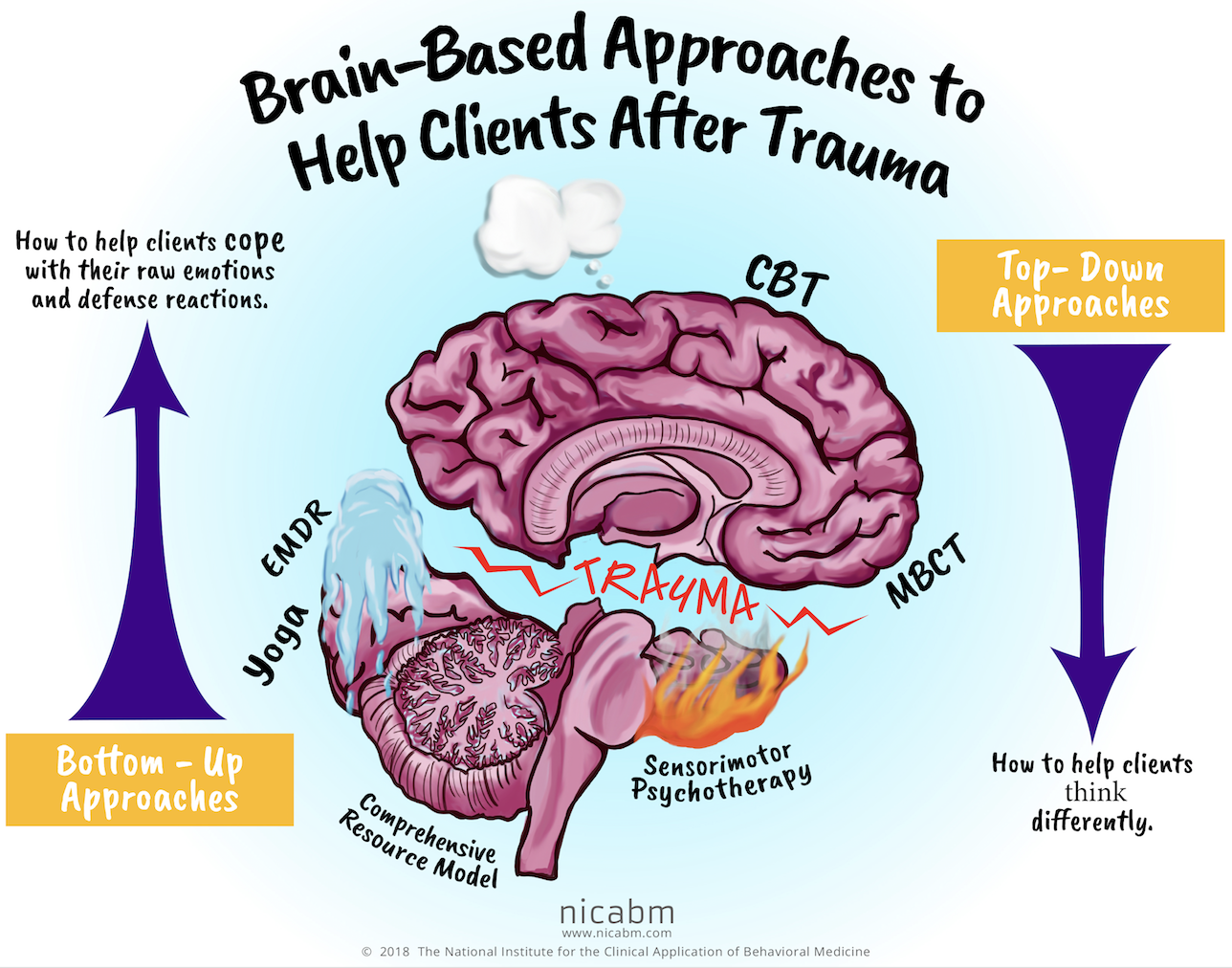Trauma-Informed Therapy

When a woman contacts Genesis for therapy, she is seeking healing from the abuse she has suffered. Domestic violence is a type of trauma that can include lasting consequences. Common effects of domestic violence include sleep disturbance (difficulty falling asleep, difficulty staying asleep, nightmares), change in appetite, depression, anxiety, post-traumatic stress (flashbacks, irritability, fear, shame, numbness, avoidance), decreased self-esteem, somatic complaints (headaches, stomach aches, asthma), and impairment of functioning. Many Genesis clients present with enough symptoms to meet criteria for a diagnosis of Post-Traumatic Stress Disorder (PTSD).
When a person is in danger, or the brain believes it is in danger, the brain cannot process information as it does ordinarily. One moment becomes “frozen in time,” and remembering a trauma may feel as bad as going through it the first time because the images, sounds, smells and feelings have not changed. Because of the physiological changes that happen in the brain and body during trauma, PTSD may result in an extreme startle response, intense reactions, and a new belief system such as “the world is completely dangerous” or “I deserve to be abused.” These alterations in thinking patterns, feelings and bodily sensations have a lasting effect and can interfere with interpersonal relationships, work performance and other important areas of life. PTSD can be developed after experiencing a variety of traumatic events including domestic violence, child abuse, combat, rape and natural disasters.
Of the several types of therapy modalities available to clients, best-practice guidelines indicate that trauma-focused therapies are most beneficial for clients with PTSD. At Genesis, we offer two evidence-based, trauma-informed models for our adult clients: EMDR and CPT. The International Society for Traumatic Stress Studies has designated both EMDR and CPT as effective treatments for post-traumatic stress. The US Department of Veterans Affairs states “53 out of every 100 people who receive a trauma-focused therapy (such as CPT or EMDR) will no longer have PTSD” after three months of treatment.
EMDR
Eye Movement Desensitization and Reprocessing (EMDR) was developed by psychologist Dr. Francine Shapiro in 1987. EMDR uses a set of standardized protocols to help clients process and make sense of their trauma. Clients bring to mind the memories, thoughts, feelings and body sensations associated with the traumatic event to engage their lower brain (limbic system) in processing the trauma before the executive brain (pre-frontal cortex) does. This is knowns as a “bottom-up approach” where clients heal through learning to cope with their emotions and defense reactions. Following a successful EMDR session, a person no longer relives the images, sounds and feelings when the event is recalled. You still remember what happened, but it is less upsetting. EMDR appears to be similar to what occurs naturally during dreaming or REM (rapid eye movement) sleep. Therefore, EMDR can be thought of as a physiologically-based therapy that helps a person see disturbing material in a new and less distressing way.
There have been more than 30 controlled studies to investigate the effects of EMDR. These studies consistently found that EMDR effectively decreases or eliminates the symptoms of PTSD for the majority of clients. EMDR therapy is recognized and used by the Department of Defense, the World Health Organization, the United Kingdom Department of Health, the Israeli National Council for Mental Health, and the American Psychiatric Association.
CPT
Psychologists Dr. Patricia Resick, Dr. Candice Monson and Dr. Kathleen Chard collaborated to create Cognitive Processing Therapy (CPT) in 1988. Contrary to EMDR, CPT uses a “top-down approach” to help clients reframe their unhelpful thoughts about themselves and about the traumatic event that formed because of the trauma. CPT focuses on the executive brain, teaching clients how to challenge their beliefs and thinking patterns through Socratic Reasoning. Like other cognitive therapies, CPT operates from the idea that thoughts and feelings are connected. For example, when someone cuts you off in traffic, your thought of “he’s so rude” can create feelings of anger. If you think “driving is dangerous,” then you would feel scared. But if you change that thought to be “he might be late for something important,” your feelings of anger and fear will decrease, and you might feel empathy or understanding towards that other driver. Thus, your feelings and understanding of the world around you shift after you modify your thoughts and beliefs. In domestic violence, common unhelpful cognitions include “it’s my fault he abuses me,” “I can’t trust anyone,” “bad things will always happen to me,” and “I’m not lovable.” While EMDR focuses first on the emotions, CPT starts with these types of thoughts to help a client process her trauma. Clients typically engage in CPT for 12 sessions where they are assigned homework to help them examine their patterns of adverse thinking. The goal is for clients to become their own therapists by learning thought-changing skills to minimize the ongoing negative effects of trauma. Clients will decrease avoidance and emotional numbing, learn to consider alternative viewpoints of themselves and the world, and reduce their levels of distress, anxiety, anger, guilt and shame which are standard symptoms of trauma. Through 20 randomized controlled trials, CPT has proven to consistently reduce PTSD symptoms. CPT is also endorsed by the U.S. Department of Veterans Affairs and Defense.
HEALING
One way Genesis fulfills our mission of providing safety, shelter and support is through our therapeutic services offered by our clinical team. Our masters-level counselors meet with women and children at our Outreach office, shelter and transitional housing program. Because we value excellence and providing the best services possible to our clients, we strive to stay up-to-date with new research in order to provide cutting-edge therapies to all our clients.
Another Genesis value is empowerment. We want to help our clients heal in the best way possible. This includes giving clients the power to choose their own treatment plan. When a client can choose her pathway to recovery, and when the available options are best-practice and trauma-informed therapies, her hope for healing will increase. Genesis clients have had limited opportunities to make decisions for themselves because their partners use abusive tactics to exert power and control over them, so the act of choosing a treatment option is an important step towards healing.
When a woman comes to Genesis for counseling, she will engage in evidence-based, therapeutic interventions to help her heal from experiencing domestic violence. At the end of therapy, she will be able to sleep better, have less physical ailments, be more sure of herself and have an increase in her sense of safety. By participating in EMDR or CPT, her PTSD symptoms will decrease, allowing her to find more satisfaction in her personal and professional life.

FOR MORE INFORMATION
https://cptforptsd.com
https://www.emdria.org
https://www.istss.org
https://www.ptsd.va.gov
Written by Ruth Guerreiro, Director of Clinical and Professional Services at Genesis Women’s Shelter.Ruth is an LCSW, Board Approved Supervisor. She is EMDRIA Certified and CPT Trained
